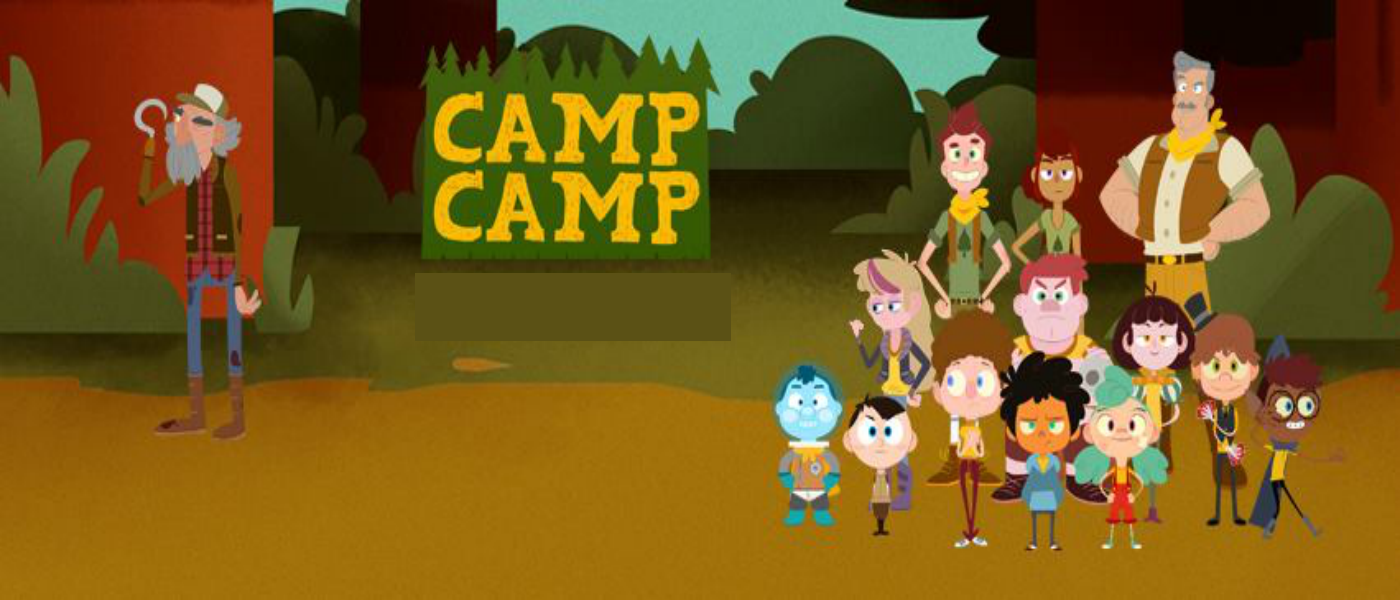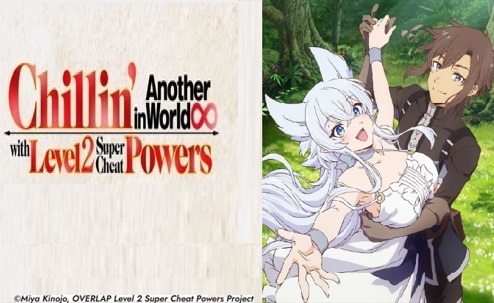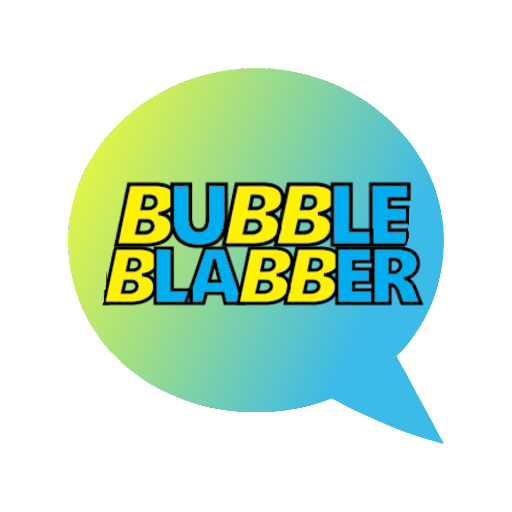Season Review: Camp Camp Season Four
Will Camp Camp ever change?
Spoilers for Season Four below!
When Camp Camp first debuted back in 2016, people were delighted by the new Rooster Teeth show. Some had even dubbed it as a combination between South Park and Gravity Falls. With its popularity growing since last season, it was apparent that Camp Camp was beginning to rise up as one of Rooster Teeth’s top shows, due to overarching plot lines developed in season three. Camp Camp has always had a history of throwing some emotionally investing episodes into its usually lighthearted series, but as last season left us with some relatively serious plots (such as Jasper’s death and Cameron’s full-time addition to the cast) it’s safe to say that most fans were ready for Camp Camp to transition into a show that held a bit more weight. The series was already lightly tackling topics like child neglect since season two, so the fact that the show came back for a fourth season surely meant that these topics would be developed further.
…Right?
On a personal note, all of the following criticisms come from the perspective of someone who initially fell in love with the show, due to its powerful statements on being an unrelenting optimist — and subsequently, the dangers of cynicism. That being said, from the optimistic point of view of someone who adores all of Camp Camp’s serious developments that occurred last season, did Camp Camp manage to flesh out these dynamic, overarching plots?
Short answer: No.
Long answer: Let’s review.
Animation/Art Style
If there’s one area where Camp Camp has grown, it’s in its animation. Watching the original title sequence side-by-side with its newly animated opening makes it evident that the show’s budget has grown, as well as its animation quality. Not only does the fluidity make it apparent that more frames per second are used, but there’s also just more movement in general. Characters make bigger gestures, and newer expressions, too.
Episodes such as “The Quarter-Moon Convergence” and “Campfire Tales” highlight the experimental things the animators did this season — whether it showcasing colorful new characters and galactic imagery, or taking on different types of art-styles entirely, this was by far the most artistically diverse season of the series. They really outdid themselves when it came to the aesthetic look and feel of the show, and the improvements are tangible.
If only the same thing could be said for the storytelling.
Plot
To start with a writer’s standpoint, here’s a statement:
I love Camp Camp.
Or rather, I’ve always loved what Camp Camp represented. While it presents itself as a comedy, it’s also a coming-of-age tale, in a way. Sure, there’s a lot of hyperbolic, over-the-top elements, but what would a cartoon be without those? The thing that sets Camp Camp apart from other cartoons, though, is the fact that it doesn’t have boundaries. No real censorship, no looming corporate Disney suits stopping them — the writers can pretty much direct the show wherever they want it go. This is why the show can flip from zany and cartoony to realistic and captivating whenever it wants.
The problem is that we’ve gotten tastes of Camp Camp’s realistic and captivating side — and we want more.
There is a huge imbalance in tone when it comes to the show’s plots. I’ve never met anyone who said, “Oh yeah I watch Camp Camp for hit episodes like ‘Who Peed the Lake?'” Frankly, there have been too many plot-irrelevant episodes in the name of keeping things funny and lighthearted, but all it’s done is make the show stale and static in comparison to what it could be.
It’s understandable that they wouldn’t want to wrap up all of their serious overarching plot lines in one season. It’s understandable that they would want to save engaging content so that they can continue making the show. It’s another thing entirely to decide, “We’re just not going to touch any of the plots/conflicts we established last season.”
Cameron Campbell’s permanent return to Camp Campbell — tied in with the fact that we learned he practically covered up Jasper’s death last season — left a lot of viewers wondering where the show would go from there. Saving Camp Campbell last season seemed like such an end-game thing, that the hype for season four having even more bombshells to follow it was pretty big. However, they practically shoved Cameron in an attic for most of the episodes. He was featured in a few, but every other episode was more-so just a cameo appearance for him (if there was even that much.) The Cameron-centric episodes focused on his development in his journey to become a good person. They seemed to want to humanize Cameron this season — maybe so that if (but hopefully when) they address the elephant in the room, it’ll have more of an impact. This is fine if that is where they’re going with this, but they killed their momentum by not doing anything to address that plot thread. Even if they had David find a vague clue about the truth, it would have sufficed, but they didn’t even do that much.
They decided to introduce an underlying character theme where Max has become more like David and David has become more like Max, but it was extremely half-baked and underdeveloped. They barely interacted as a duo this season, and the only reason this development was apparent is because the show loves to turn directly to the camera and comment on the meta every five seconds. (Which brings up the flaws in its comedy. Seriously, the meta/self-awareness bits are so old.)
The thing about season four is that it really wasn’t a plot season — it was a character season, with a very clear theme: Change. Change is the heart of season four, and this is something that was clearly emphasized throughout. They did a lot of character developments on all ends. This would have been fine if it hadn’t followed so many plot bombs the seasons prior — because, as stated earlier, not addressing any of them damaged the overarching plot momentum.
This isn’t to say there weren’t any good solo plots this season. Everyone can agree that the best episode was “The Forest,” and there were a lot of other unique character development episodes. But just how much did everyone change?
Characters
Max’s change is that he and David are supposedly “rubbing off on each other” now. He clearly cares about his friends — and the camp — more openly. However, we already saw this. The season three finale was literally all about Max realizing that he loves his friends and that he loves Camp Campbell. It got a little redundant. Also, this doesn’t necessarily make Max more like David. This change has more to do with Max tearing down the emotional walls he’s built up over the years. The real change Max went through was coming to terms with the struggles of tearing down these walls, and learning what it is to be a good person — something that seems to be more comparable to Cameron than anything.
Cameron, unlike Max, though, is still attempting to start his journey into being a good person and letting people in. He is a pathological liar (“Cameron Campbell Can’t Handle the Truth Serum”) who has intimacy issues (“Panicked Room”) and it takes him the entire season to even seem like he’s genuinely interested in changing. This did feel like a slight step back, considering that Cameron turned himself in during the season three finale because he wanted to start that change, but realistically, no one changes overnight. It’s just hard to tell when this show takes itself seriously and when it doesn’t, due to the tonal imbalance (between cartoony and realistic.)
David, of course, was challenged this season. The initial change that the campers pointed out was that Max’s personality had also rubbed off on him. As stated above with Max, though, this statement doesn’t necessarily reflect that their changes had anything to do with each other directly. In David’s case, it seems as though the only thing that changed is that his actions became more chaotically aligned. David is (very clearly) still a good-aligned character, but he had that goodness and optimism challenged, which caused him to take more chaotic routes. This is evident when he hires a criminal to poise Cameron as a hero in “Keep the Change,” but it’s crystal clear during the season’s greatest episode: “The Forest.” “The Forest” is a testament to David’s pure-hearted optimism and goodness, something that (thankfully) stayed true, through all the trials and tribulations he faced during that episode. David may be more adept to chaotic choices now (such is the nature of Camp Campbell) but it’s important that they didn’t make David become selfish, or a cynic. This is because David’s steadfast optimism represents the heart of the show. Some things don’t need to change. Side note, but important note: they should really stop physically abusing David so much. It’s like watching a puppy getting beaten — it’s hard to watch and has never been entertaining. Seeing how much he got trampled on nearly made this reviewer stop watching back in season one.
However, the underlying all-star of the season was Gwen. It took until season four, but Gwen is finally getting the same character development treatments that David and Max had been getting. Gwen’s personality beforehand seemed to consist of four things: tired, stressed, horny, and millennial. They really developed her passed these traits, though, and used the “millennial” part of her to their advantage. In “Party Pooper,” Gwen declares that despite all that she never got to accomplish, she’s proud of what she’s done. However, in “Time Crapsules,” she declares that she’s a failure and feels like it’s too late to change. Like Cameron and Max, this seemed like conflicting development — however, this is a pretty accurate depiction of a millennial at its finest: being proud of the present while crumbling about a crippling fear of being unaccomplished.
The other kids learned a great lesson about change throughout the season, too, despite…undoing their changes in “The Butterfinger Effect.” It brings into question the strength the theme use had, but the season finale seemed to bring a better point home: change is inevitable, but all change can be turned to good.
Sound Design/Voice Acting
All the voice acting was fun as usual — David’s voice in “The Forest,” of course, was heart-wrenchingly phenomenal. To date, it really seems like it was the best vocal performance in the series thus-far. New voices introduced (such as Ainsley’s in “Fashion Victims”) were also super entertaining to listen to. The only one that seemed to fall flat in comparison to the others was Miss Priss’ voice — which still seems a bit too “young” for a woman who’s Cameron’s age.
As always, the ending credits that feature raps tailored to each episode are made with a lot of heart. It’s easy to miss in-show songs (such as “Better than You”) but hopefully, that won’t be the last we see of them.
Did it do its genre justice?
At this point, who is Camp Camp even for? It’s for adults, yet they won’t go in on their serious plot lines, leaving threads to just dangle there while they spontaneously flip to other pieces of the tapestry to weave. If they’re trying to appeal to a younger audience by leaning into the more lighthearted bits, then all they’re doing is ruining the show (and not giving those viewers an opportunity to tune into some really good storytelling.)
In short, Camp Camp — we’ve seen what you can be. We’ve seen it at its fullest potential, but if it wants to soar, its gotta spread it’s wings. It’s with a lot of hope from fans that Camp Camp will stop being so afraid of itself — of all the parts that make the series spectacular, with episodes like “The Forest” and other season finales. Because we’ve seen what it can be, though, it really has no excuse to keep floundering around full of episodes that take the audience nowhere. If Camp Camp could find a happy medium between its serious storytelling and its cartoony charm, it could really bring in the numbers.
In other words: if Camp Camp wants to be anything more than mediocre, it needs to follow its own advice: change.
























Hi Ashley, thank you so much for reading and we love the feedback. Note that on that day we had 14th posts go up and only ten posts show on the front page, so it's possible the preview had already been archived by the time you got to it. One recommendation would be to add our RSS feed to your favorite news aggregator service like Feedly, this way you get all of the latest posts!